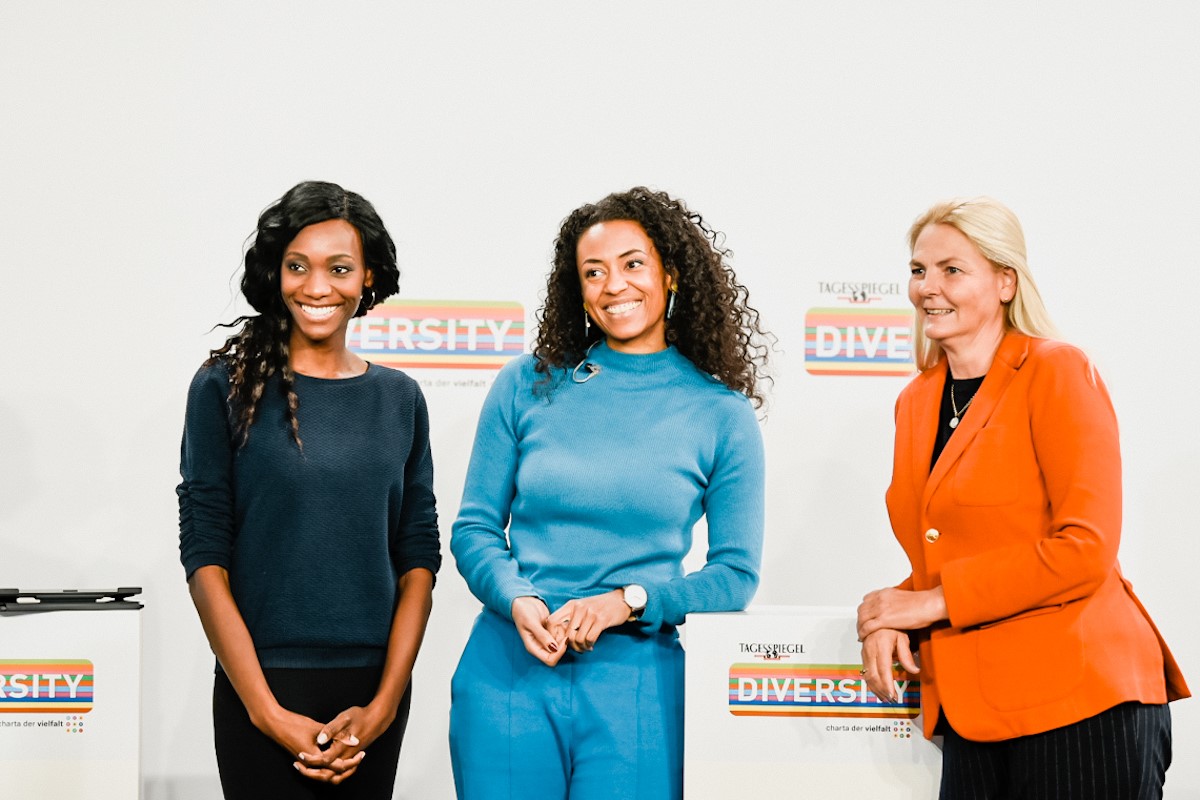Germany: Report from DIVERSITY conference, 11 – 12 November 2021

date: 25/11/2021
Ana-Cristina Grohnert, chairwoman of the German Charter, emphasised this theme in the conference’s kick-off: a lot has already been done in the strive for a diverse economy and society, but in order to achieve the necessary changes we all need to be allies.
Other experts emphasised the intersectional perspective that is crucial to diversity. Women with disabilities face multiple discriminations on the labour market, they generally have a lower income and fewer opportunities for advancement. What we need is a stronger focus on the capabilities and unique perspectives of people with disabilities, as well as a dialogue at eye level. Inclusion will only be achieved, said Paralympic athlete Markus Rehm, when a person with disability can also be criticised at the workplace. Instead of making empty promises, employers need to cultivate inclusive workplaces in collaboration with people with disabilities.
Big transformations in organisations can only be successfully managed when everyone is involved and when the necessity for change is repeatedly and transparently explained, said Katharina Wolff, publisher of STRIVE magazine, and Claudia Oeking, managing director of Philip Morris GmbH. Especially digitisation has made transformative environments inevitable. Including diversity in this process is central to manoeuvring big changes, as it is the collection of different perspectives and experiences that provides answers to new questions. Diversity is a driving force for modernisation.
Sustainability and diversity were point of discussion in an expert lab between Andreas Heinecke (Dialogue Social Enterprise GmbH), Denise Hottmann (Boehringer Ingelheim) and Anja Karslhaus (CBS International Business School). The social dimension of sustainability has not been sufficiently considered, and especially the potentials of people with disabilities need more attention. Additionally, studies show that diverse teams act more sustainably and creatively. The workings of crossfunctional teams were also the topic of one masterclass. Ultimately, the focus should not be on how diversity and sustainability fit together, but how one can reenforce the other.
Identity politics was matter of debate on another panel, featuring former German Federal President Christian Wulff. Often the question “Where do you come from?” is not intended as a conversation starter, but as a means for categorisation, and entails an exclusionary subtext. All the more important to create an awareness for the struggles minority groups face in their work environments.
Social heritage as a diversity factor has only this year been introduced at the German Charter. Naturally, it was a topic of discussion at the conference how different social heritages can act as a benefit and more businesses should make a conscious effort to open up to this potential. Measures can be a diverse recruitment panel or mandatory trainings on unconscious biases.
Allyship in sports and how it can serve as an example for businesses was another conference highlight. Paralympics athlete Markus Rehm called success a “series of solved problems” that is only achieved by a diverse team and clear roles.
Other perspectives addressed at the conference were diversity in the media; a feminist lens on comedy by Maren Kroymann; the efforts of Deutsche Bahn in taking societal responsibility seriously; representation in the composition of the new German parliament by the German commissioner for integration, Annette Widmann-Mauz; as well as a keynote by Margot Käßmann on diversity from a religious perspective.
Allyship may be a trending term, but is not a status that can be acquired and should not be seen as an end in itself. Rather, it is a path you embark on. It means questioning own privileges and standing up for those less privileged without taking up the stage. Anyone can be an ally, even those that are marginalised in one way can stand up for other groups. What matters is that we keep talking to each other, taking the time to listen, and the courage to speak up. In the spirit of these words, this DIVERSITY conference has been a big success and we are looking forward to next year’s event!
